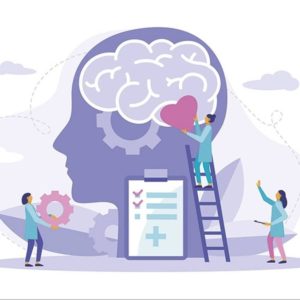Adolescence is a phase of life filled with excitement, growth, and self-discovery. However, it is also a time when many teenagers may experience imbalanced mental health. Recognizing the signs of potential challenges and adopting effective strategies to manage them can make all the difference. Let’s delve into some common signs of imbalanced mental health during adolescence and explore ways to handle them:
1. Sleep Troubles: Difficulty falling asleep, frequent waking during the night, or waking up feeling unrefreshed can indicate underlying issues. Establishing a consistent sleep schedule and creating a calming bedtime routine can improve sleep quality.
2. Planning vs. Execution: Struggling to put plans into action and frequently procrastinating may be a sign of mental health imbalance. Breaking tasks into smaller steps and celebrating each accomplishment can boost motivation.
3. Irritability: Adolescents may experience heightened irritability due to the various changes happening in their bodies and minds. Engaging in relaxing activities and talking to friends can help manage these feelings.
4. Fear of Rejection and Seeking Attention: Feeling self-conscious about others’ opinions is natural, but an overwhelming fear of rejection and constant attention-seeking could indicate mental health challenges. Embracing one’s uniqueness and building authentic connections can alleviate this fear.
5. Communication lag with Parents: Misunderstandings between parents and teens are common during this period of shifting perspectives. Open communication, empathy, and finding common ground can bridge the gap.
6. Diverting Attention and Overusing Gadgets: Excessive use of technology can impact mental well-being. Allocating tech-free time, pursuing hobbies, and nurturing face-to-face relationships are essential for balance.
7. Academic Stress: Feeling overwhelmed by academic pressures and tying self-worth solely to grades can negatively affect mental health. Seeking support and maintaining a healthy balance between academics and personal life is crucial.
8. Social Withdrawal: Persistent social withdrawal or isolation may signal emotional struggles. Reaching out to a trusted individual and gradually engaging in social activities can help combat loneliness.
9. Substance Use and Risky Behaviors: Turning to substances or engaging in risky behaviors to cope with emotions can have serious consequences. Seeking help and adopting healthy coping mechanisms is essential for well-being.
Adolescence can be both thrilling and challenging, and it’s vital to prioritize mental health during this transformative period. By recognizing signs of imbalanced mental health and implementing strategies like maintaining a healthy sleep routine, managing irritability, embracing uniqueness, and seeking support when needed, adolescents can navigate this phase with resilience and well-being. Remember, seeking help is a strength, not a weakness, and support is available for those who reach out. Let’s empower teenagers to take care of their mental health and thrive during this exciting journey of self-discovery.


